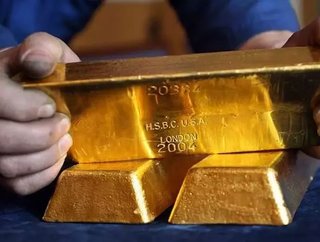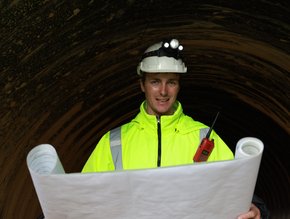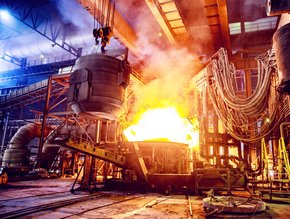UPDATE: Kibali Gold Mine

Press Release--The ongoing search for additional reserve ounces at Kibali will secure its future as a long-life mine and one of Africa’s largest gold producers, according to Randgold Resources chief executive Mark Bristow. Randgold develops and operates the mine, which it owns in partnership with AngloGold Ashanti and the Congolese parastatal SOKIMO.
In 2014, its first full year of operation, the Kibali gold mine produced 526,627 ounces of gold at a total cash cost of $573/oz and Bristow told a media briefing here that production and cost for the first quarter of 2015 were likely to be within guidance.
• Randgold Resources & AngloGold Ashanti Open Kibali Mine
• [INFOGRAPHIC] 5 Ways Gold is Helping Make the World a Better Place
“When you’re producing gold at the rate of around 600,000 ounces per year, the need to replace the reserves that are consumed is of critical importance,” Bristow said. “We believe Kibali’s KZ structure hosts significant additional resources, and our continuing exploration is confirming this potential. A number of targets have been identified and the Kalimva-Ikamva and Kanga sud targets have been prioritised for in-depth investigation.”
Kibali is still a work in progress, with its third open pit now operational and the development of its underground mine ahead of schedule. Ore from its stopes is already being delivered to the plant but the underground mine is only expected to be in full production by 2018. The first of the mine’s three hydropower plants was commissioned last year and work on the second is well underway.
The metallurgical plant is operating at its design capacity and construction of the paste plant is nearing completion. Despite the high level of production and development activity -- some 5,000 people are employed on site -- Kibali is maintaining a good safety record, with the lost-time injury rate reduced by 16 percent last year.
Kibali represents an initial investment of more than $2 billion and at a gold price of $1 200/oz and its current mine plan is only expected to repay its funding after 2024. Thanks to its strong cash flow, however, it has already been able to repay the first tranche of its debt in March.
Bristow said Kibali was continuing to invest in the development of the regional economy by using local contractors and suppliers wherever possible. A prefeasibility study on a palm oil project, designed to provide a sustainable source of post-mining economic activity for the region, has been completed and work on a bankable feasibility study has started.
On the issue of the DRC’s proposed new mining code, Bristow said he welcomed Prime Minister Augustin Matata Ponyo’s recent statement that the government was ready to re-engage with the mining industry with the intention to review the draft submitted to parliament and was open to further discussions with the sector.
“We were surprised and disappointed when the ministry of mines presented a draft code to parliament without taking the industry’s comments on board and which departed radically from the common ground we thought had been established. As the DRC chamber of mines warned at the time, enactment of the code in this investment-hostile form will have a catastrophic effect not only on the mining sector but on the Congolese economy generally. It was therefore very heartening to learn from the prime minister that the government has recommitted itself to negotiation,” he said.
- Luca Mining's Tahuehueto to double throughputSupply Chain & Operations
- Peter Mah named President and CEO of Spanish Mountain GoldSupply Chain & Operations
- SSR Mining acquires 40% stake in Hod Maden from Lidya MinesSupply Chain & Operations
- Gold price nears 7-month peakSupply Chain & Operations






